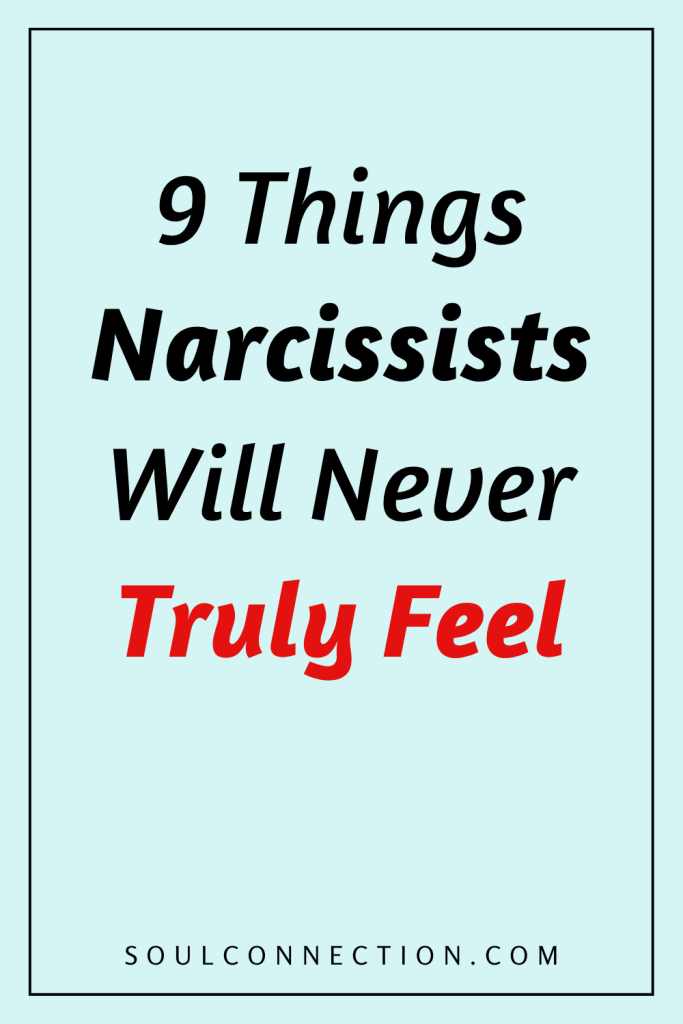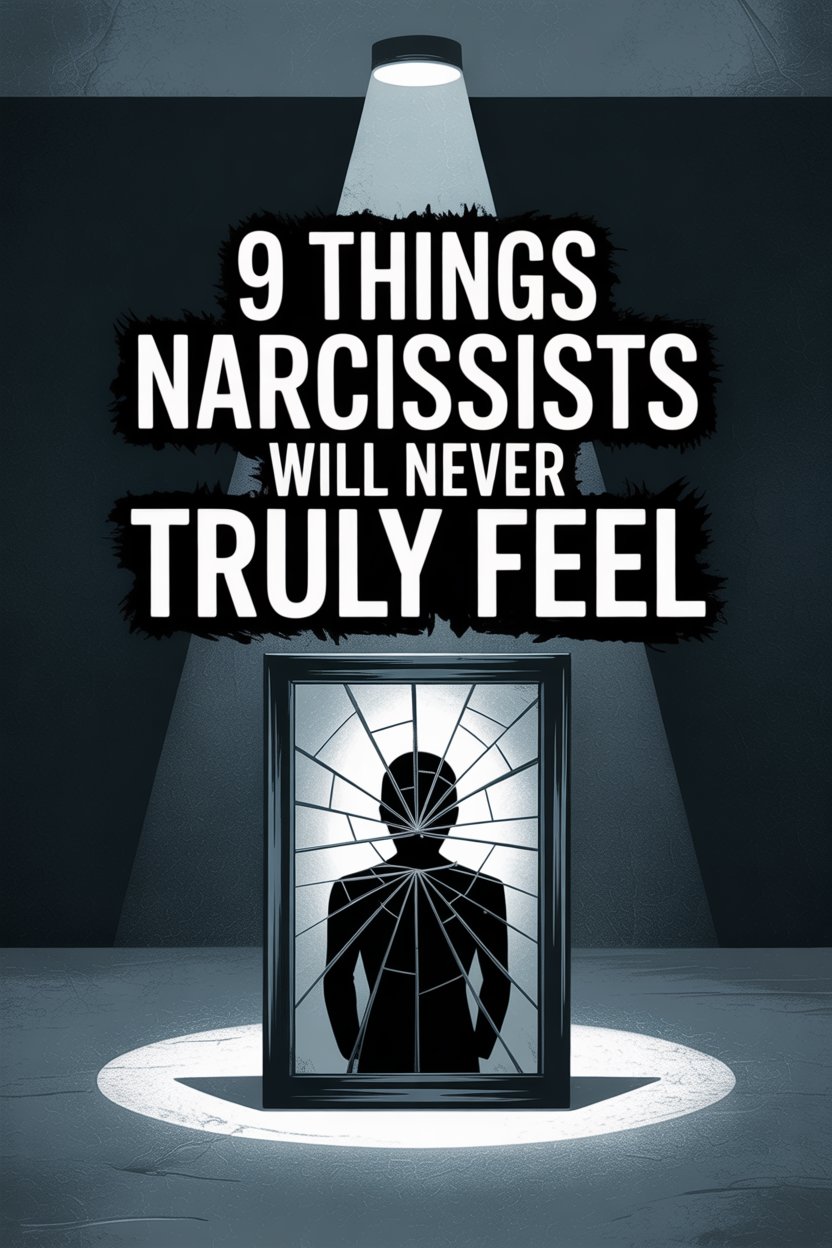Ever tried explaining empathy to a brick wall? That’s about as rewarding as waiting for a narcissist to feel something genuine.
For anyone who’s ever tried loving, living with, or even just ordering coffee from a narcissist, the emotional drought is real.
No, it isn’t your imagination—there are certain feelings a narcissist just can’t access, no matter how many vision boards or therapy sessions you draw them into.
Curious what tops the list? Prepare yourself for a greatest hits tour of emotional blanks.
1. Genuine Empathy
Picture a cat watching you trip over a shoe: interested, possibly a little amused, but not about to lend a paw. That’s the closest a narcissist comes to empathy.
They can spot distress, sure. They might even ask, “Are you okay?”—but only to keep up appearances or make it about them.
True empathy, the kind that aches for another person and wants to help, is as foreign to them as a budget airline seat with legroom. If you keep hoping for that “aha!” moment where they actually get it—bring snacks, it’s going to be a long wait.
2. Lasting Remorse
Oops, they did it again. And again. Sincere remorse means recognizing harm and wanting to do better. For narcissists, apologies are more like PR statements: damage control, not heartfelt confession.
There may be a performance of regret if caught red-handed, but it ends the moment the threat to their image fades. Don’t expect them to lie awake replaying their worst moments, tormented by guilt.
The only thing keeping them up at night is plotting their next move—or possibly Googling themselves.
3. Unconditional Love
There’s love, and then there’s narcissistic love, which usually comes with a receipt and an expiration date. Unconditional love requires seeing someone’s flaws and loving them anyway.
Narcissists, on the other hand, love you for how you make them feel, or for how shiny you make them look. If you stop serving their ego, the “love” dries up quicker than a puddle in the Outback.
They want devotion, but reciprocity isn’t part of the package.
4. Healthy Vulnerability
Opening up, risking rejection, sharing fears—these are Olympic sports for narcissists, and the stadium is permanently closed for renovations. Vulnerability requires trust and a willingness to admit imperfection.
For the narcissist, revealing weakness is unthinkable. If they do share something “vulnerable,” there’s a good chance it’s either exaggerated for sympathy or part of a larger play for attention. That tough outer shell? Super-glued on.
5. Deep Gratitude
A narcissist’s gratitude is like a boomerang—it always circles back to them. Sincere appreciation for others’ efforts or sacrifices? Rare as hen’s teeth. They expect admiration, applause, and adoration as their birthright.
When they do toss out a thank-you, it’s often transactional, or to secure future favors. Don’t hold your breath for a heartfelt “I couldn’t have done this without you.”
They’re more likely to remind you that your help was only necessary because you’re not as clever as they are.
6. True Jealousy (for Others’ Well-Being)
Envy, yes. Jealousy in the sense of wishing others well when they succeed? Not in this lifetime. When someone else wins, narcissists don’t feel inspired—they feel threatened.
The idea that someone else’s happiness could add to their own is completely lost on them. A friend gets promoted? Clearly, the universe is out to get them.
Their partner enjoys a new hobby? Suddenly, the narcissist’s attention is elsewhere. They can’t genuinely celebrate someone else’s good fortune unless it benefits them or gives them bragging rights.
7. Lasting Trust
Trust, for the narcissist, is a one-way street with potholes and a traffic warden waiting to ticket you. They either trust absolutely (if you’re worshipping them), or not at all. Anything in between is chaos.
Their paranoia about betrayal isn’t about you—it’s about the fact that they themselves can’t be trusted, so they assume the same of everyone else. Building trust is like nailing jelly to a wall: messy, frustrating, and ultimately pointless.
8. Comfortable Intimacy
Intimacy asks for mutual connection, a gentle sharing of space, and the safety to be seen. Narcissists crave attention, but actual closeness? Not so much.
Their relationships have all the warmth of a conference call. When intimacy gets too real, they sabotage, distance, or start a drama that puts them back in the spotlight.
Surface-level affection is their specialty; anything deeper makes them squirm. The closer you get, the faster they retreat to safe (and shiny) emotional ground.
9. Humble Self-Reflection
“Wow, maybe I was wrong” is a phrase so alien to the narcissist’s lexicon it might as well be Martian. Honest self-reflection means accepting flaws and striving to grow.
For the narcissist, self-examination is more a search for scapegoats than an exercise in maturity. When forced to look in the mirror, they see only perfection—or blame the mirror for being warped.
Admitting mistakes? That’s for mere mortals.
How to Cope When These Feelings Are Missing
Living with or loving a narcissist is a masterclass in frustration. The emotional needs that seem so basic—empathy, remorse, trust—may never show up.
If you’re waiting for them to transform into the emotionally aware partner you’ve always wanted, you’ll be waiting longer than it takes for a British train to run on time.
Here’s the truth: the only feelings you can control are your own. Boundaries aren’t just a good idea; they’re essential.
Know your limits and communicate them, even if your requests are met with blank stares or dramatic sighs. Lean on your own support system—friends, family, professionals who get it.
Don’t let a narcissist’s emotional stuntedness diminish what you give and feel.
Self-compassion is the antidote to their lack. If you find yourself doubting your needs or feeling guilty for wanting “too much,” remind yourself that wanting kindness, empathy, and love isn’t asking for the moon.
It’s basic human stuff. Don’t shrink your feelings or settle for crumbs.
If you’re on the fence about staying or going, remember: it’s not your job to fix what they refuse to acknowledge. Your happiness doesn’t depend on their emotional evolution.
Sometimes the bravest, kindest thing you can do is step away and create space for your own feelings—messy, inconvenient, and gloriously real.
Because unlike a narcissist, you’re capable of the best kind of feeling: genuine, imperfect, heart-wide-open humanity.


